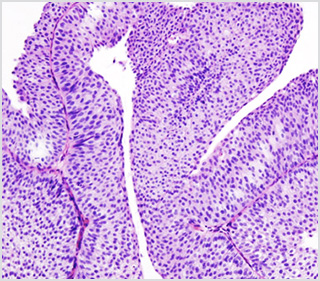Use of Immunotherapeutic Expanded to Bladder Cancer
The U.S. Food and Drug Administration decision means nivolumab is now an approved treatment for six types of cancer.

Use of the immunotherapeutic nivolumab (Opdivo) was recently expanded by the U.S. Food and Drug Administration (FDA) to include the treatment of certain patients with bladder cancer.
Under the expanded approval, nivolumab is intended for treating patients with locally advanced or metastatic urothelial carcinoma whose disease has progressed despite treatment with platinum-based chemotherapy or whose disease progressed within 12 months of neoadjuvant or adjuvant treatment with platinum-based chemotherapy.
Urothelial carcinomas begin in urothelial cells that line the inside of the bladder.
According to the National Cancer Institute, they account for more than 90 percent of bladder cancer cases diagnosed in the United States. In 2017, this is predicted to translate into more than 71,000 new cases of urothelial carcinoma.
With a five-year relative survival rate of just 5 percent, new treatment options are urgently needed for metastatic bladder cancer.
The approval of nivolumab for urothelial carcinoma was based on results from a phase II clinical trial, according to the FDA announcement. In brief, the results showed that 19 percent of the 270 patients who received nivolumab had tumor shrinkage for a median of 10.3 months. Of the 53 patients who had tumor shrinkage, 7 had complete tumor shrinkage and 46 had partial shrinkage.
Given that the approval of nivolumab centers on response data, rather than overall survival, the company that manufactures nivolumab, Bristol-Myers Squibb, is required by the FDA to conduct additional studies to confirm that the immunotherapeutic improves survival for patients with urothelial carcinoma.
Nivolumb works by releasing a brake (or checkpoint protein) called PD-1 on cancer-fighting immune cells called T cells. Nivolumab releases the PD-1 brake by preventing it from being engaged by two proteins called PD-L1 and PD-L2. Once the PD-1 brake is released by nivolumab, the T cells are able destroy cancer cells.
Nivolumab is the second new treatment approved by the FDA for patients with bladder cancer in less than nine months, after more than 30 years with no new treatment options emerging. The other is also an immunotherapeutic that targets the PD-1/PD-L1 braking system. Atezolizumab (Tecentriq), which targets PD-L1 was
approved for treating certain patients with urothelial carcinoma in May 2016, after it was shown to yield remarkable and durable responses for some patients, like
Dave Maddison, who was featured in the AACR Cancer Progress Report 2016.
The FDA approval was rendered on Feb. 2, 2017.